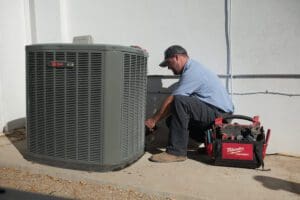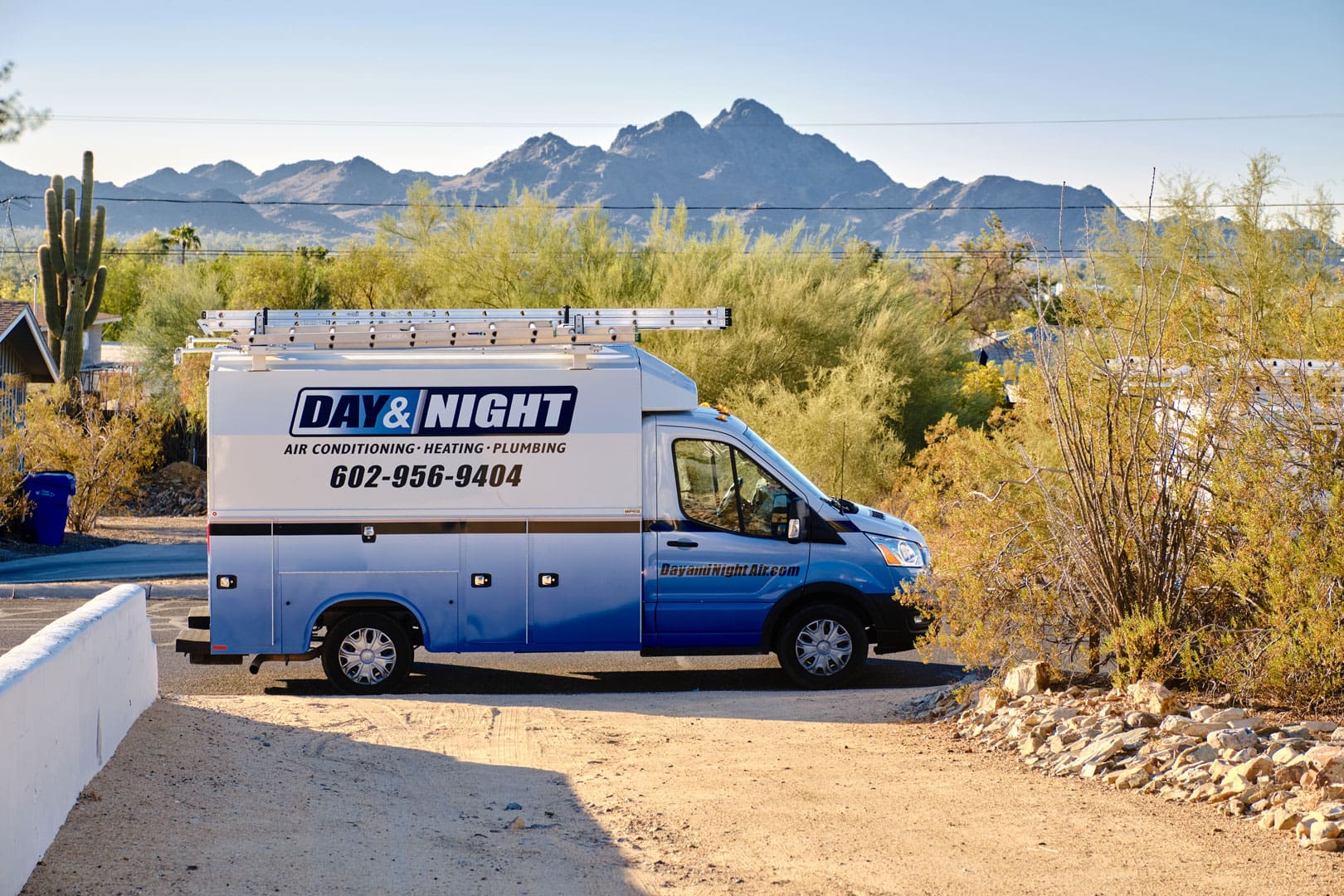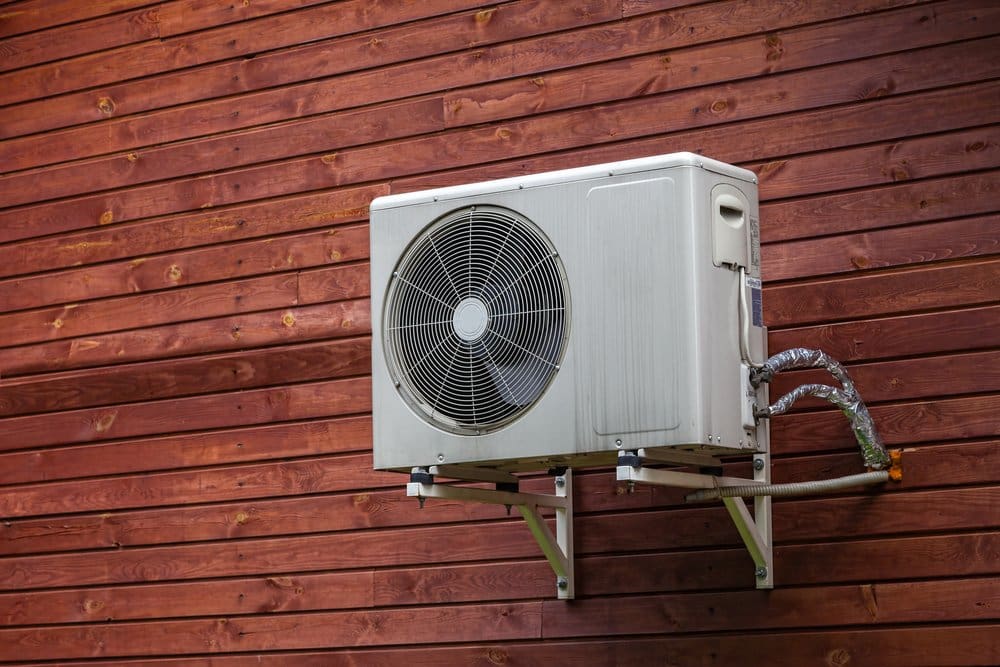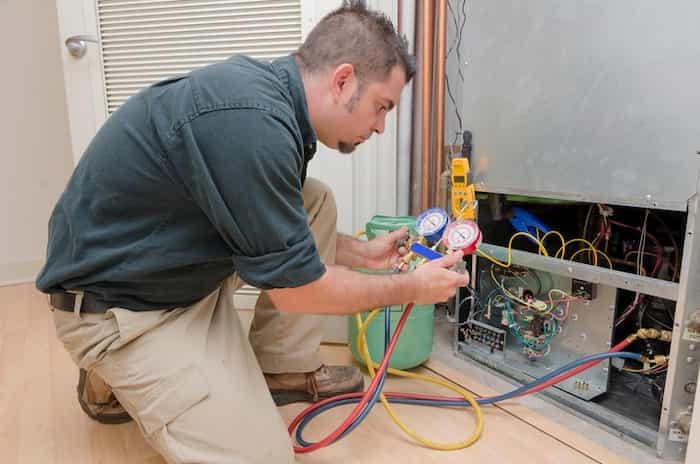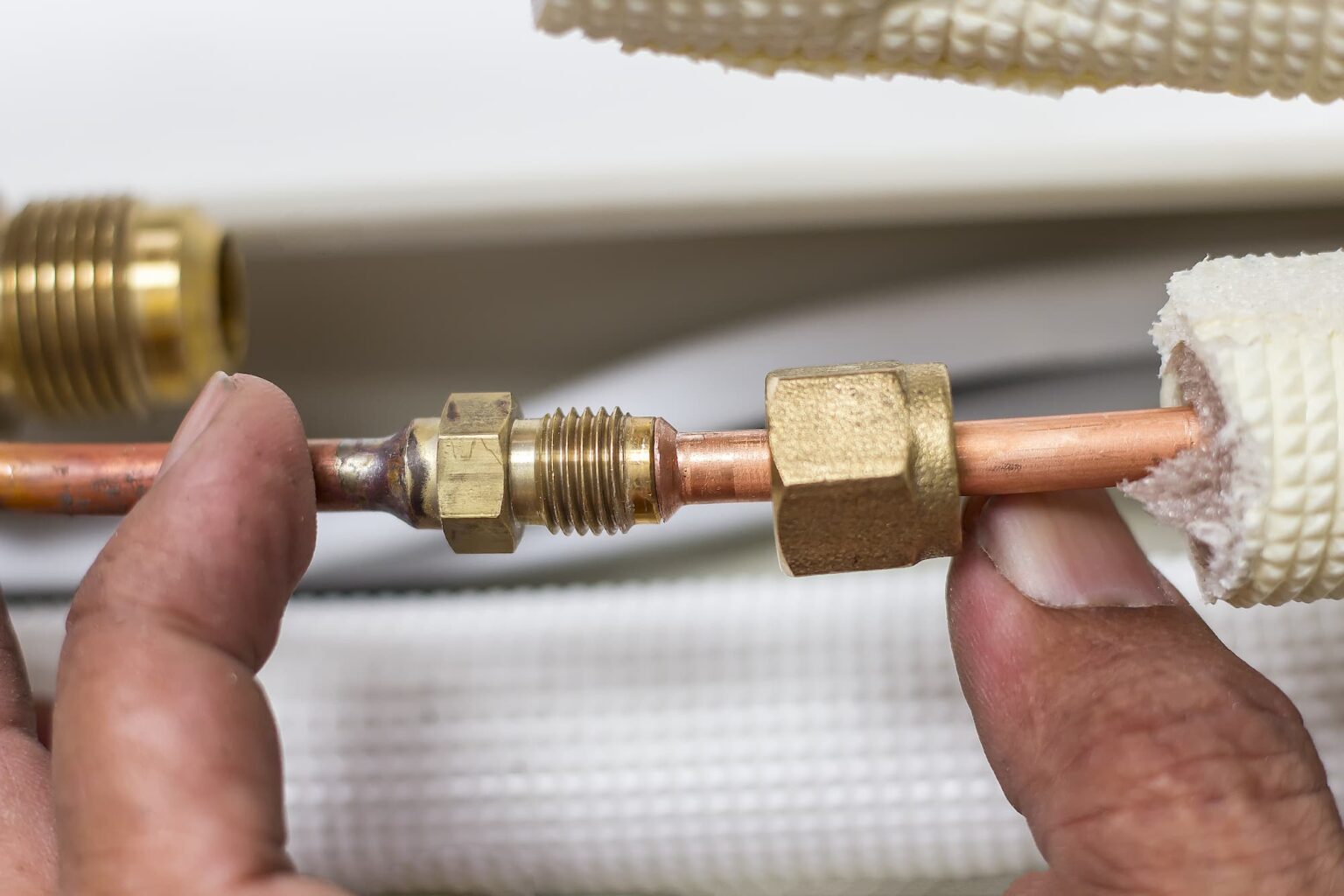An often overlooked but very critical part of your HVAC system is the air filter. It not only protects and preserves the air quality, but it keeps your air conditioner safe from dust, dirt, and debris so that it can run at peak efficiency. At Day & Night Air Conditioning, Heating and Plumbing , we often get asked the question, “What type of air filter should I buy?” With so many choices for homeowners in Phoenix, Arizona to decide between, we want to help make it easier to purchase your filter by discussing some different types and what that could mean for you.
What Air Filter Do I Need?
Many homeowners think the only factor they need to know about their air filters is the size to purchase. However, there is a huge variety available on the market. The options vary from the construction to the materials and more. If that wasn’t enough, there are also different quality ratings. Each type may offer various advantages or disadvantages. Let’s look at the options.
Fiberglass
The least expensive air filters are fiberglass. They provide the least protection of all options and are only recommended for prefiltering use by the National Air Filtration Association, as they only catch the largest particles while letting everything else pass through. While they provide plenty of airflow, which is vitally important, they don’t provide adequate filtering to function as the sole filtration mechanism. Advances in materials and frequent replacement of your filters mean that airflow shouldn’t be a problem with other, much better options.
Pleated
The name refers to the way the material is formed within the frame. The accordion shape maximizes the surface area, providing more opportunities to capture very small contaminants. The synthetic polymers not only filter effectively but maximize airflow. The advantages include high filtering efficiency and low effort, only requiring a periodic replacement.
Washable Electrostatic
The most expensive option is the washable electrostatic air filter. These metal-framed filters are reusable, mitigating some of the cost. There is a wide disparity in price among the different brands. The top of the cost range can be around $90, depending on the size.
The primary advantage of electrostatic filters is their longevity. Though they will eventually wear out, it takes many years as long as you take care of them. That may seem like reason enough to invest. Unfortunately, there are a few disadvantages you should weigh before deciding.
One of the main disadvantages is the time it takes to wash and dry them. There is a high risk of mold or mildew growth if the filter isn’t allowed to dry completely before reusing. They also rely on static electricity to capture particles, which means they have difficulty capturing larger particles. As a result, they capture smaller contaminants but let larger ones pass through, the opposite of fiberglass filters.
What About Filter Quality?
Now that you understand the pros and cons of the types of filters, it’s time to take it a step further with determining the right filter quality for your needs. There are three separate rating scales:
- MERV scale – The Minimum Efficiency Reporting Value scale runs from 1-16. Most situations are best served with anything from 8-13. Under eight is inadequate and not recommended for home use. 14-16 is a level of quality not generally needed in most homes without a specific reason.
- FPR scale – The Filter Performance Rating scale is a proprietary rating developed by Home Depot for its products. The range is 4-10 and has an accompanying color code.
- MPR scale – The Microparticle Performance Rating scale developed by 3M Corporation for its Filtrete filters. It has a range of 300-800. It bases its scale on the ability to capture particulates under 1 micron in diameter.
So, how can you tell which filter quality is the right one for you? It depends upon influences like whether you have allergies, pets, or high pollution in your area.
Allergies
The type and severity of your allergies significantly impact the type and quality of air filters you should use. In general, if you are very sensitive to local plants, grasses, pollens, or other allergens that are prevalent in your area, you’ll want to look for a higher rating, comparable to a MERV 13. If you are only mildly allergic, you may be fine with something similar to a MERV 11. In short, the more severe your allergies, the higher quality you’ll want for your filter.
Pets
Dogs, cats, and other furry friends and family members are fun to have around. However, their dander is not. Dander is the flakes of skin that accumulate on the fur, only to be distributed every time they move. Many people are very allergic to animal dander and suffer from severe reactions.
If this sounds like you, you’ll want to invest in a high-quality filter similar to a MERV 13. For those who have pets but no obvious dander allergies, you can go with a lower quality filter and still have adequate protection. A MERV 11 or comparable quality should keep you and your guests comfortable with air that has been filtered from most dander.
Pollution
The air around your home, in most cases, is much more toxic than the air indoors. Despite your best efforts to create the most secure, weather-sealed environment, outdoor air will make its way indoors. Smog, a big problem in Phoenix, exhaust, and other toxic substances can cause problems for people with severe allergies or respiratory issues. Pollution can be particularly dangerous for people with compromised immune systems. In this situation, invest in a filter that is equivalent to a MERV 13.
Now you know about choosing the right type of filter for your home. You also understand more about how to select the optimal quality for your needs. All you need to do now is the size. If you don’t have an existing filter to tell you the dimension you need, simply measure the length and width and add 1/4″ to both to determine the filter size to purchase.
Do Air Filters Also Purify the Air?
While air filters play an essential role in air quality, they aren’t the same as air purifiers. To get optimal air quality, choosing the right filter, keeping your HVAC system maintained regularly, and installing an air purification system like the Trane Clean Effects Air Purification system is recommended. The Clean Effects Air Purification system is rated 99.98% effective at trapping particles. The team at Day & Night highly recommends this system due to its reliability and efficacy.
Count on Day & Night for All Your HVAC Needs
With the wide choice of filters on the market, it can be confusing to know which combination of material and quality rating is the right one for your Phoenix home. Spending more on an expensive filter may not always be the answer. It takes understanding your unique needs and weighing the advantages and disadvantages. When in doubt, don’t hesitate to contact the team at Day & Night. We are here to serve all your air conditioning, heating, and plumbing needs.

